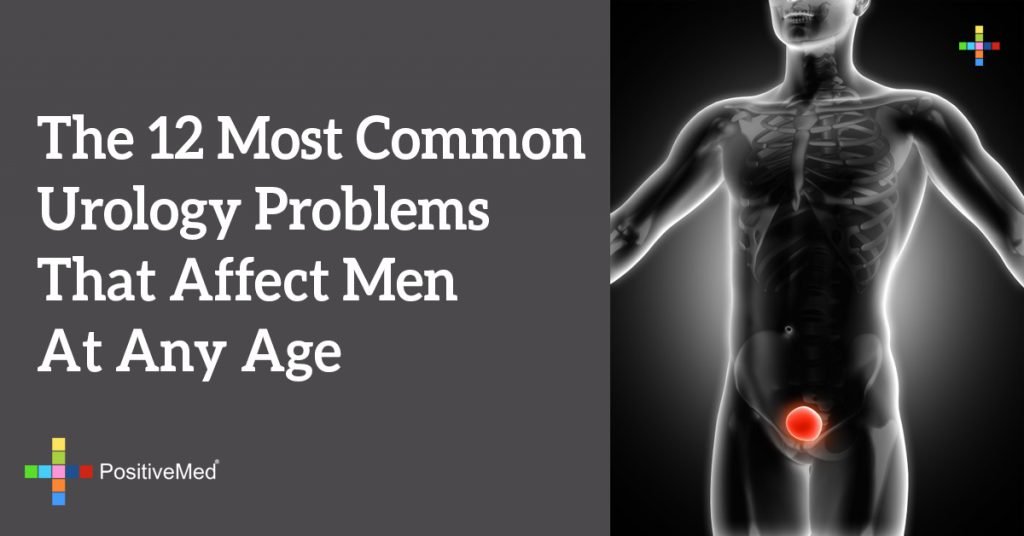
The 12 Most Common Urology Problems That Affect Men At Any Age
A urologist is a physician that specializes in treating medical conditions related to the both the female and male urinary tracts, as well as conditions and diseases that affect the male reproductive organs. Here are twelve reasons a man might make an appointment with his urologist.

1. Erectile Dysfunction
Erectile dysfunction is a condition in which a man experiences difficulties with getting or maintaining an erection. This can be treated with either medication, surgery, or external vacuum devices.
2. Incontinence
Urinary incontinence is when an individual loses control of their bladder, which can cause urine leaking or the urge to urinate frequently. There are several treatments for incontinence, including medications, physical therapy, or surgery.
3. Urinary Tract Infection
If a man is experiencing painful or burning urination or cloudy urine, this could be a sign of a urinary tract infection. A urologist will test the urine to make sure it is a UTI and rule out other problems, and in most cases, prescribe a round of antibiotics.
4. Prostatitis
Prostatitis is an infection in the prostate. Symptoms can include fever and chills; painful urination; and pain in the abdomen, pelvic area, or lower back. In some cases, however, there are no symptoms. A urologist will run tests to determine if this is the cause of symptoms, and, similar to a UTI, will most likely prescribe antibiotics.
5. Enlarged Prostate
Although more problematic for older men, this condition is fairly common. An enlarged prostate can push on the bladder, causing incontinence; men may experience the urge to urinate frequently or leaking urine. They may also struggle with urinating. Treatment for an enlarged prostate may include medications or surgery.
RELATED ARTICLE: 4 Health Problems Most Men Will Have by Age 50
6. Infertility
Another reason for a man to visit a urologist is infertility, which is when a man has trouble conceiving children. A urologist can help properly diagnose the cause of infertility and help create a treatment plan. Treatment for infertility depends on what is causing it.
7. Peyronie’s Disease
Peyronie’s disease is a condition in which scar tissue forms inside the penis, and can make it bend to the side, or upward. It’s not visible, but can cause pain during erections and make love-making difficult. Most cases do not need treatment, but severe cases may require surgery or medication.
8. Kidney Cancer
Kidney cancer can be difficult to diagnose, since it does not normally exhibit many obvious symptoms. A urologist may discover this disease while treating a different condition. When it is caught early, it is highly treatable and curable.
9. Bladder Cancer
Bladder cancer is more common, especially in smokers. Urologists can diagnose bladder cancer, and help structure a treatment plan, which may involve other specialists. Treatment could include transurethral resection of tumors, chemotherapy, laser therapy, or immunotherapy.
10. Prostate Cancer
Prostate cancer is very serious, as it is the second-leading cause of cancer death in men. Symptoms can include frequent and painful urination, blood appearing in the urine or semen, and pain the pelvic area. Treatments include surgery, chemotherapy, and radiation therapy.
11.Kidney Stones
Kidney stones can be painful as they try to pass out of the body. Easily diagnosed, there are many different treatment options, including surgery to remove them.
12. Vasectomy
This is a common reason to see a urologist. This simple procedure is one of the most effective methods of birth control and involves severing or blocking the tubes that carry sperm.
Urologists are an important part of men’s healthcare. They can diagnose a range of disorders, and provide treatment as well. It’s important to seek out a urologist for any of these symptoms or conditions.





